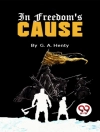In ‘Kid Scanlan, ‘ H. C. Witwer crafts a vivid and poignant narrative that captures the complexities of adolescent life during the early 20th century. The novel interweaves elements of adventure and coming-of-age themes, chronicling the journey of a young boy navigating the trials of friendship, identity, and ambition in a rapidly changing world. Witwer’s prose is marked by its rich imagery and emotional depth, reflecting a keen understanding of youth’s internal struggles against the backdrop of societal expectations. His engaging storytelling resonates with the reader, imbuing the tale with both nostalgia and relevance. H. C. Witwer, an accomplished writer and journalist, drew upon his own experiences growing up and his observations of youth culture in America. His background in sports journalism lends an authenticity to the competitive spirit and camaraderie depicted in the novel. Witwer’s belief in the power of youth and the importance of dreams likely positioned him to explore the resilience and aspirations of the book’s protagonist, making readers connect with Scanlan’s challenges on a personal level. ‘Kid Scanlan’ is essential reading for those interested in classic American literature that addresses youth and identity. Witwer’s masterful storytelling invites readers to reflect on their own formative years, making this book a timeless exploration of growth, ambition, and the bonds of friendship.
A propos de l’auteur
Harry Charles Witwer, better known as H. C. Witwer (1890–1929), was an American author renowned for his humorous and sports-themed writings during the early 20th century. Witwer’s literary career began after he served in the U.S. Navy during World War I, wherein his experiences likely influenced the distinctively colloquial and satirical voice that defined his works. His narratives often revolved around the vibrant boxing scene, capturing the zeitgeist of the Roaring Twenties and reflecting the burgeoning popularity of sports in American culture. One of Witwer’s notable contributions to the genre of sports fiction is ‘Kid Scanlan’, a tale that follows the life of a boxer and offers a candid look at the trials and tribulations of the sporting life. Witwer’s writing style is characterized by its wit, vernacular speech, and a penchant for portraying the underdog, which resonated with his readers. Unfortunately, Witwer’s promising career was cut short by his untimely death at the age of 39. Despite his brief career, he left behind a legacy that has had a lasting impact on sports literature and humor writing. Witwer’s works remain a testament to the spirit and lingo of an era, depicting the lighter side of American life with a literary flair that still entertains readers today.












